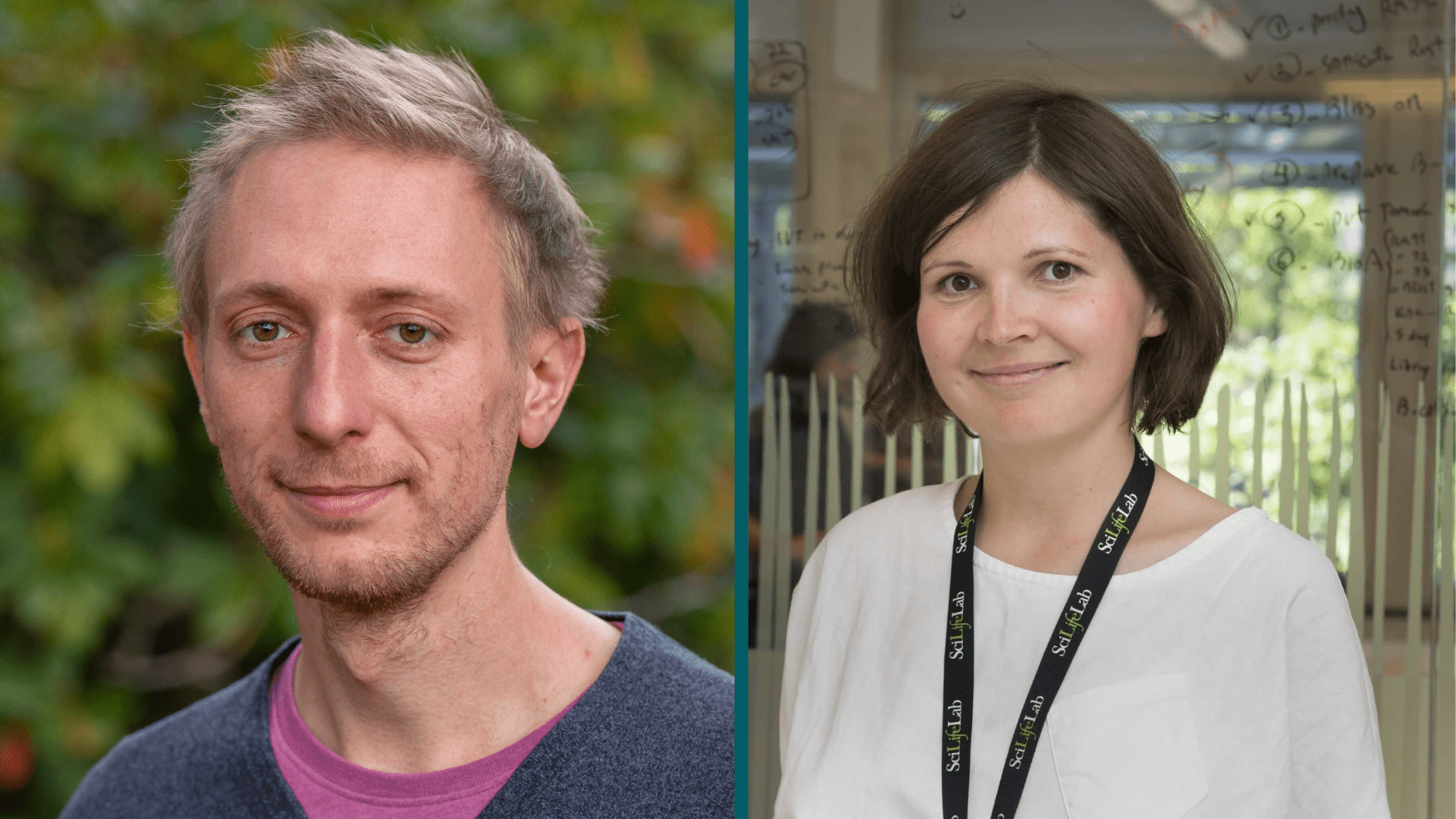Two SciLifeLab Fellows alumni receive prestigious ERC Consolidator Grants
In January, the European Research Council (ERC) granted 321 new ERC Consolidator Grants for projects in 18 different countries. Two SciLifeLab Fellows alumni, Magda Bienko and Simon Elsässer, both from Karolinska Institutet, received the grant. The total number of ERC grants received by the SciLifeLab Fellows over the years is now 17, which underlies the success of the fellows program and the fellows themselves.
The consolidator grants represent one of four core grant schemes provided by the European Union’s research funding body, the ERC. It supports researchers with seven to twelve years of experience after their PhDs and spans all research disciplines from engineering to life sciences to humanities.
Magda and Simon are SciLifeLab Fellows alumni and both have previously received ERC starting grants that have supported experimental work carried out in their laboratories at SciLifeLab Campus Solna.
Simon Elsässer
This is Simon’s fourth ERC grant since becoming a SciLifeLab Fellow. “The Consolidator grant is a high distinction for my entire team, including many past members who contributed to our shared success stories. ERC allows me to carry out long-term projects requiring substantial technological development investment, and hence I’m grateful for the continued support”, he says.
The project, titled “ChromaDYN: Quantitative multimodal pulse-and-label time-resolved chromatin maps”, is about getting a better understanding of embryonal development. “The project revolves around important questions in humans or, more generally, animal embryonal development: how do cells decide – and later remember – which fate to follow? How are different lineage identities encoded and how are the right genes turned on and off at the right time during development?”, Simon explains.
Magda Bienko
This is also not the first time Magda has received an ERC grant. “Receiving an ERC grant means getting approval for your research vision from the top experts in the field. Since the ERC grants are meant to be high-risk and high-gain, this approval gives an incredible boost of confidence and, in my case, further charges me with extra energy to deliver on what is promised in the proposal. It is an incredible feeling to know that not only you believe in your project but also many experts around you”, she says.
Magda’s project title is: “RADIALIS: Illuminating radial genome organization in the nucleus” and the goal is to explore how meter-long DNA can fit into the microscopic nucleus of every cell. “RADIALIS is filled with many bold hypotheses on what shapes higher order structure of the genome have and what the functional consequences of certain genome arrangements are, and I am extremely curious to test them one by one, being of course always prepared to disprove some of them. I am particularly curious to understand how chromatin-bound proteins are spatially arranged in the nucleus and eager to add this spatial dimension to the regulation of gene expression”, Magda explains.
Impressive ERC track record
Within the roughly 10-year period of the program, SciLifeLab Fellows and Fellows alumni have been awarded 17 ERC grants (10 starting, 5 consolidator, 2 proof of concept grants), a very impressive achievement. All four original host universities of SciLifeLab have received ERC grants brought by the SciLifeLab fellows. In the case of Simon, four ERC grants (with two proof of concept grants) for one PI is a particularly extraordinary achievement.
The SciLifeLab fellows program has provided basic start-up funding and the framework to enable host universities to recruit excellent young life science group leaders and place them in a nurturing research ecosystem that has helped them to pursue their science efficiently.
It can be concluded that SciLifeLab fellows have developed nicely in the cross-disciplinary research, infrastructure, and data environment unique to SciLifeLab. “The emerging wave of ERC consolidator grants indicates that SciLifeLab alumni fellows are now becoming scientific leaders in their fields. This is an objective measurement of the success of the SciLifeLab fellows program and something that we look forward to replicating with the newly established DDLS fellows program”, says Olli Kallioniemi, SciLifeLab Director.





